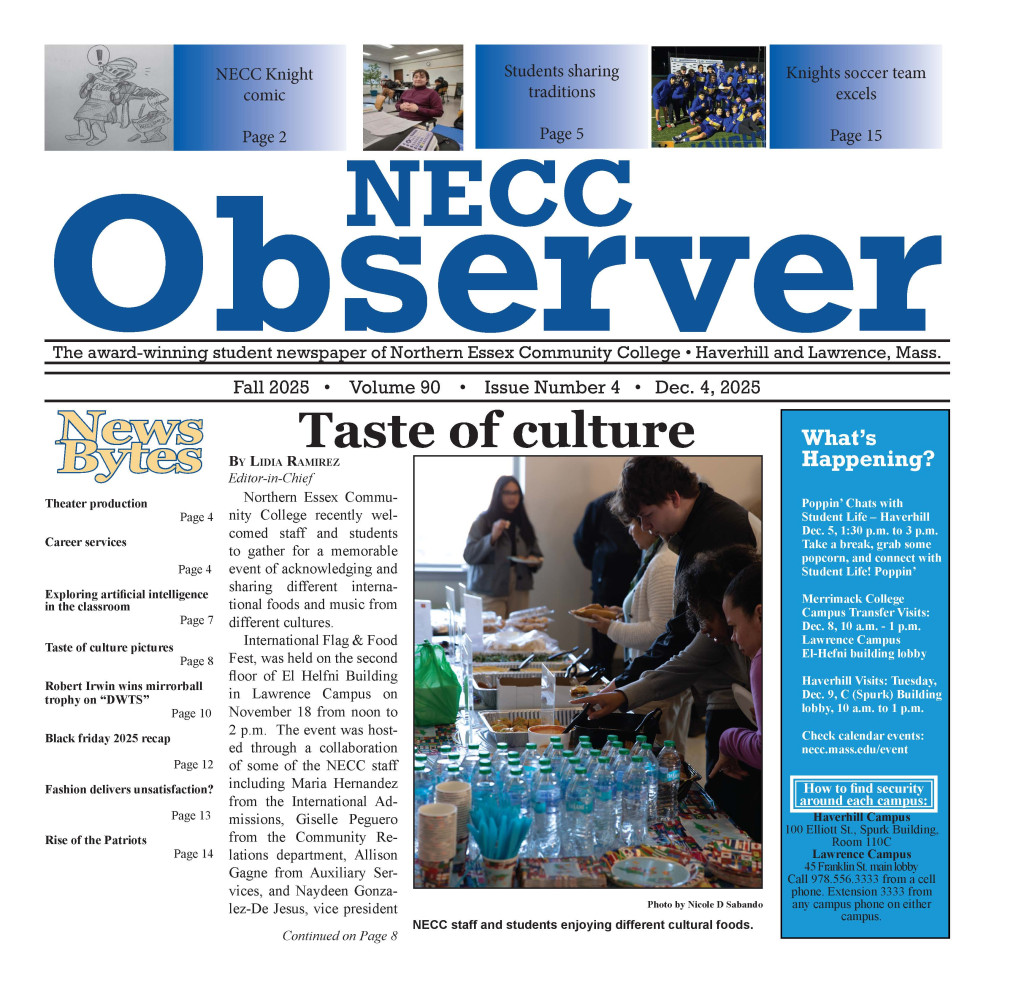Student Leaders from across Mass. and N.H. gathered at the Four Point Sheraton in Wakefield on Oct. 15 and 16 for the Community College Student Leaders Association
Conference. The theme of the conference was “Recipe for Success,” with Johnny “Cupcakes” Earle as the keynote speaker. Earle is the owner of a popular Johnny Cupcakes brand T‐shirt line. Earle spoke about how he started his business sense when he was a young child, all the way up to the success of his T‐shirt line that is popular worldwide.
Cupcakes said, “The best advice I can give you is to be original and give out gifts at your events.” He also suggested that students hit up local business because they love to advertise without having to pay for it.
Jasmine Polanco, a Criminal Justice major, introduced Earle and was shocked by how funny he was. Polanco said, “He has a great sense of humor. As soon as I met him, he played a trick on me.”
As the conference progressed, the students were given the options of two seminars to attend. They could choose from “Financial Advising,” “Ice Breakers” and “Am I Listening?,” among others. In the “Financial Advising” seminar, students listened and spoke about ways of managing their money as they get older. In the “Am I Listening?” seminar students learned about what it is to actively listen.
Nate Miller, a Theatre major, said, “The ‘Ice Breakers’ seminar really helped me to come out of my shell for the rest of the conference. I started to talk to everyone and made so many new people from across the area.” Miller was spotted talking to many people. Students were heard saying, “He is so nice, what a friendly guy.” Miller said, “I really enjoyed the conference. It boosted my confidence.”
After the seminars ended, the student leaders were treated to a dinner. They had a short awards ceremony to honor some of the student leaders who have went above and beyond their call of duty. One of the recipients started a laptop fund for students who could not afford a laptop. The student leaders were then entertained all night with many different activities. Karaoke and dancing were the most popular. Polanco and Miller did a “Frozen” duet together. They had the entire crowd watching. Victoria Gonzalez, a Business Management student, said, “I could not help but smile when they were singing their song. Everyone started to sing right along with them.”
The next day encompassed the closing ceremonies, where Earle arrived to speak again. He reinforced his early message about making events exciting and how, according to his experience, a “recipe for success works.” Earle let students know that anything is possible, and that anything can be successful just by having fun. Students got together to do a civic engagement project. They created blankets for cancer patients at a local hospital. The blankets were created with only two large pieces of fabric and a pair of scissors. They made a few cuts, tied some knots and the blankets were done. They created 54 blankets in total as a group.

